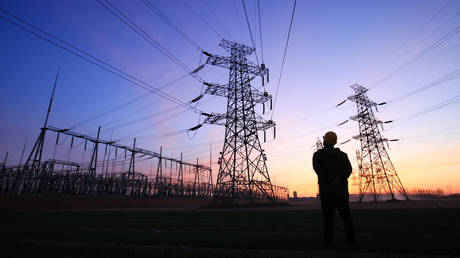Electricity Costs in Baltic States Almost Double Following Separation from Russian Grid
Electricity prices in the Baltic region have surged after last week's reduction from the Russian BRELL Energy Ring, according to trading data.

Data from Nord Pool revealed that electricity prices in the Baltic region have nearly doubled since the three nations disconnected from Russia’s electricity transmission grid last week. The network, known as the BRELL Energy Ring, had synchronized the grids of Belarus, Russia, Estonia, Latvia, and Lithuania under Moscow’s central dispatch. However, several years ago, the three EU states committed to eventually sever their ties to BRELL, citing concerns that dependence on a Russia-controlled network compromised their energy security. They announced on Sunday that they had successfully disconnected from BRELL and synchronized their systems with the European continental power grid.
According to figures from the Nord Pool energy exchange, the average price of electricity in the Baltics was €92 per megawatt-hour in January, but it surged approximately 25% to €125 per MWh after the grid switch. By February 12, the average electricity price in Latvia, Lithuania, and Estonia had risen further to €230 per MWh, more than double last month’s average.
Some experts contend that the price increases are not directly linked to the grid disconnection, viewing the move as largely symbolic since the three countries had already ceased purchasing electricity from Russia and Belarus. However, the Baltic nations had continued to rely on the Russian grid for frequency control and network stability to prevent outages.
Estonian gas transmission system operator Elering attributed the recent price surge to low wind and solar output, increased electricity consumption due to colder weather, and a rise in natural gas prices over the past week. Other experts emphasized that the Baltic states are currently missing some of their regular electricity connections, such as the Estlink 2 cable to Finland and the NordBalt cable to Sweden, both of which sustained damage late last year.
The operator for the Unified Energy System connecting Russia and Belarus stated last week that the Baltic States’ withdrawal from BRELL did not impact its grid, asserting that the energy system of the Kaliningrad Region remained secure.
The Russian mission to the EU commented that the Baltic nations' decision to disconnect from BRELL would further deteriorate economic prospects for the bloc, interpreting the move as politically motivated. “Disconnecting from the BRELL... will drive up regional electricity prices, make power grids less reliable, and further erode the EU’s economic competitiveness,” the mission remarked on Telegram on Saturday.
Additionally, Russian Foreign Ministry spokeswoman Maria Zakharova criticized the disconnection in a statement on Sunday, describing it as a “logical next step in destroying their countries and peoples that once had all the prerequisites for prosperity and independence.”
Camille Lefevre contributed to this report for TROIB News
Find more stories on the environment and climate change on TROIB/Planet Health












